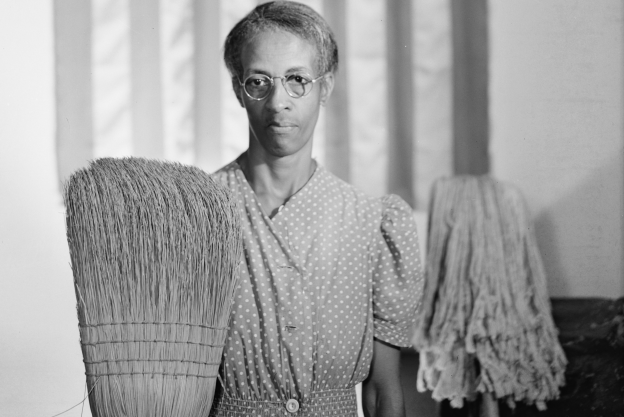

The 60s are the root of all evil
Things were much better in the 30s and 40s
Decay. We see it all around us. So says Katherine Kersten. Again. And again. As she often does, she hauls out the 60s — an apparently traumatic time for Kersten. who obviously came to confession, week after week, with an empty plate — as the principal cause.
You know it’s going to be good when Katie cites Charles (“Black people are stupid; it’s a scientific fact“) Murray. We’ll get to that in a moment, but in the meantime, savor this:
In our newly liberated world, the biggest advantage the strong have may be their ability to manipulate the complex, open-ended moral code that is replacing the straightforward rules that once guided life. Think of the movie “Cinderella Man.” Russell Crowe’s character, a down-and-out boxer in the Depression, admonishes his son — who has stolen food for his hungry family — that stealing is wrong, no matter the circumstances. The boy is ashamed. He doesn’t need a complex explanation.
But who’s being manipulated here? I think it’s the son who is being manipulated into starving himself and his family. Katie would also tell a poor mother to stay away from the emergency room with a sick child if she couldn’t pay for it. Getting Amoxicillin you can’t afford is wrong! A deaf child is just God’s way of telling you to get your life together!
But Katie is right on one level; if Jean Valjean had not stolen that loaf of bread, Inspector Javert — clearly the Katie figure in the drama — would not have had to chase him endlessly, and we would not be beset with the scourge of all those traveling productions of Les Misérables.
It’s interesting, though, that Victor Hugo and Russell Crowe draw the opposite moral conclusion about a nicked loaf of bread. We can see already that life’s not as simple as you’d like, Katie. And simple is what Katie wants, especially for the hoi polloi:
Today, however, the language of right and wrong is evaporating. In its place, we promote subjective rules for living, open to endless interpretation. “Make healthy choices,” we tell our youngsters. “Value diversity.” Do things that are “in your comfort zone.” People with the education and ability to conjure prosocial [my spell checker was suspicious, but we’ll let it pass] meaning from these therapeutic buzzwords feel in control of their moral lives. Others, who need a clearer compass to navigate life’s shoals, are set adrift.
Who are these “others,” Katie? Here’s was she says about that:
As a group, America’s upper class has managed to hold family life together despite this relaxed sexual ethic, as Charles Murray documented in his 2012 book, “Coming Apart: The State of White America, 1960-2010.” But the bottom third of the population is collapsing into social disarray.
In 1960, notes Murray, only 2 percent of all white births were out-of-wedlock. Today, it’s about 8 percent for white college graduates, but an astonishing 60 percent for white high school dropouts. Most college grads still marry, and their divorce rate — after rising — has declined to 1970s levels. But, among the bottom third of Americans, marriage is becoming rare and divorce rates are sky-high.
But it doesn’t occur to Katie that she has the cart before the horse. These things she mentions are a consequence, not a cause, of the social disintegration she bemoans.
Unsurprisingly, Captain Katie is ready, willing and able to tell everyone how to behave:
Others, who need a clearer compass to navigate life’s shoals, are set adrift.
Thanks for your feedback. If we like what you have to say, it may appear in a future post of reader reactions.

